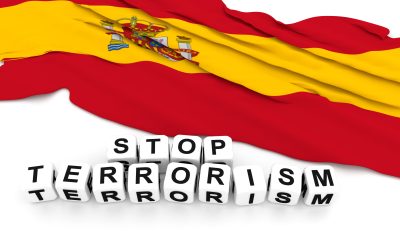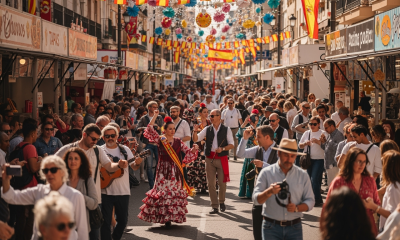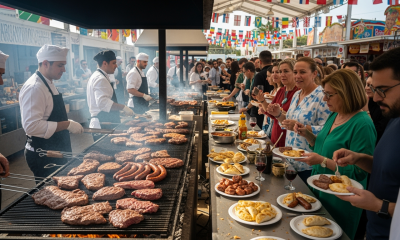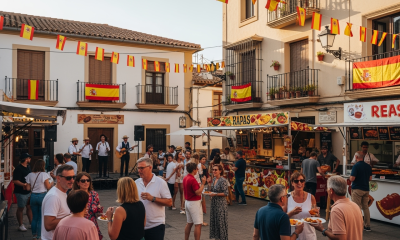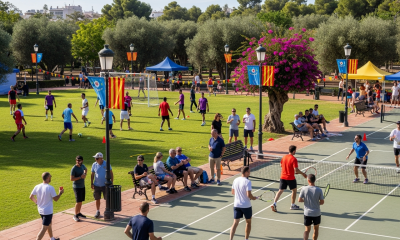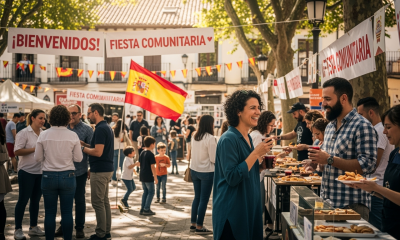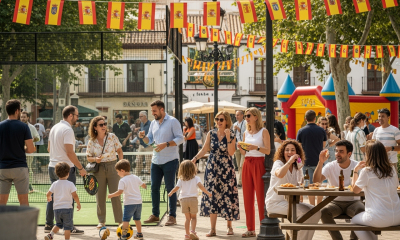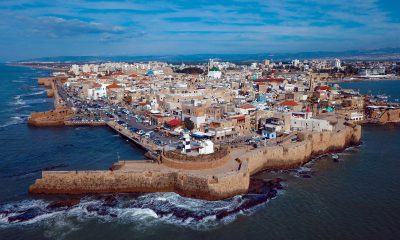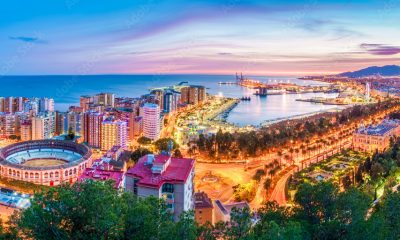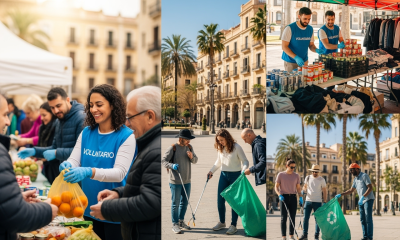Spanish Cuisine
Wine Regions of Spain

A Journey Through Spanish Wine
Spain is a country known for its rich cultural heritage, stunning landscapes, and, of course, its exceptional wines.
With a winemaking tradition dating back thousands of years, Spain boasts a vast and diverse range of wine regions, each with its unique terroir and grape varieties.
In this article, we’ll take you on a journey through some of the most prominent wine areas in Spain and explore the types of wines they produce.
Rioja
Situated along the Duero River in the Castilla y León region, Ribera del Duero is renowned for its bold and robust red wines.
The primary grape variety here is Tempranillo, known locally as Tinto Fino.
These wines often display intense dark fruit flavors, firm tannins, and a remarkable aging potential. Some of the most esteemed Spanish wines, such as Vega Sicilia and Pingus, hail from this region.
Priorat
Nestled in the Catalonia region, Priorat is a small but prestigious wine area known for its unique terroir and powerful wines.
Here, Garnacha (Grenache) and Cariñena (Carignan) grapes dominate the vineyards.
Priorat wines are full-bodied, complex, and often exhibit notes of black fruits, minerals, and spices.
They are recognized for their minerality and aging potential.
Jerez
Moving south to the Andalusian region, we find Jerez, home to Spain’s famous sherry wines.
Sherry comes in various styles, from the dry and light Fino and Manzanilla to the rich and sweet Pedro Ximénez and Cream Sherries.
These fortified wines are aged using a unique solera system, which imparts distinct flavors and aromas, ranging from crisp and nutty to lusciously sweet.
Catalonia
Catalonia is a diverse wine region that includes several sub-regions such as Penedès and Priorat.
Aside from Priorat’s red wines, Catalonia produces a wide range of wines, including sparkling Cava, which is Spain’s answer to Champagne.
Cava is typically crafted using traditional Champagne methods and offers a fresh, crisp, and affordable alternative to its French counterpart.
Rías Baixas
Venturing to the northwest corner of Spain, we find the Rías Baixas region in Galicia, known for its exceptional white wines made from the Albariño grape variety.
These wines are refreshing and aromatic, with notes of citrus, green apple, and a distinct saline quality, thanks to their proximity to the Atlantic Ocean.
Rías Baixas whites are perfect companions to seafood dishes.
Andalusia
In addition to Jerez, Andalusia boasts other wine-producing regions such as Montilla-Moriles and Málaga.
These areas are famous for their sweet and fortified wines, produced from Pedro Ximénez and Moscatel grapes.
These wines are rich, sweet, and often enjoyed as dessert wines.
Conclusion
Spain’s diverse wine regions offer a treasure trove of flavors and experiences for wine enthusiasts.
From the bold and structured reds of Rioja and Ribera del Duero to the crisp whites of Rías Baixas and the unique world of sherry in Jerez, Spanish wines
showcase a remarkable range of styles and terroirs.
Whether you’re a novice wine lover or a seasoned connoisseur, exploring Spain’s wine regions is a journey well worth taking to discover the essence of Spanish wine culture.
Cultural
Best Spanish festivals and how expats can participate (2025 edition)

Published: August 2025
Spain is world-famous for its vibrant festivals – from wild street parties to solemn processions and everything in between. For expats, joining in these celebrations is one of the best ways to experience Spanish culture, meet locals, and make lifelong memories. Here’s your guide to the most popular Spanish festivals in 2025, plus tips on how foreigners can join the fun.
Why festivals matter in Spain
Festivals (fiestas) are at the heart of Spanish life. Each town, city, and region has its own unique celebrations, often rooted in history, religion, or local traditions. These events bring communities together, break down barriers, and create unforgettable experiences for everyone – locals and newcomers alike.
Top Spanish festivals in 2025
- La Feria de Abril (Seville): A week of flamenco, horses, and casetas. Join in by renting a traditional costume and dancing until dawn.
- San Fermín (Pamplona): Famous for the running of the bulls. Expats can watch safely from balconies or join the parades and concerts.
- La Tomatina (Buñol): The world’s biggest tomato fight! Tickets are required – book early for 2025.
- Las Fallas (Valencia): Giant sculptures, fireworks, and street parties. Volunteer to help build a falla or join a local group.
- Semana Santa (nationwide): Dramatic Easter processions in cities like Málaga, Seville, and Granada. Respectful participation is welcome.
- Feria de los Países (Fuengirola): Celebrate global cultures with food, music, and dance – perfect for expats!
- Fiesta de San Juan (coastal towns): Bonfires and beach parties on the shortest night of the year. Bring friends and jump the flames for luck.
How expats can join in
- Check your local town hall or tourist office for festival dates and activities.
- Look for expat groups or language exchanges organizing group visits.
- Volunteer for setup or events – many festivals welcome extra hands.
- Respect local customs and dress codes, especially for religious events.
- Bring cash, comfortable shoes, and a sense of adventure!
Useful links
FAQ
Disclaimer: This article is for informational purposes only. Always check official sources for dates and details before attending.
Cultural
Why social life matters for expats in Spain

Published: August 2025
Moving to Spain is about more than just finding a home or a job – it’s about building a life. For expats, developing a social network is one of the most important (and rewarding) parts of settling in. A strong social life helps you integrate, improves your well-being, and opens doors to opportunities you might never have found otherwise. In this article, we explore why social life matters so much for expats in Spain, and how you can make the most of it.
The importance of connection
Research shows that expats with an active social life adapt faster and feel happier in their new country. In Spain, where community is woven into daily life, having friends and connections is essential for everything from navigating bureaucracy to enjoying local traditions. Social ties help you:
- Learn the language faster through real conversations
- Find support with paperwork, housing, and job hunting
- Discover hidden gems and local experiences
- Feel less isolated and more at home
Integration and mental health
Loneliness is a common challenge for new arrivals. Studies from InterNations and Expatica show that expats who actively build social circles experience lower stress and adapt more easily. In Spain, joining community events, sports clubs, or language exchanges can be a lifeline for mental health and well-being.
Building your network: where to start
Spain offers endless opportunities to meet people. Some of the best ways to start building your social network include:
- Joining local clubs and sports teams (check your town hall or Meetup.com)
- Attending language exchanges or international meetups
- Volunteering for local charities or community projects
- Participating in festivals and neighborhood events (Spain’s official event calendar)
- Connecting with expat groups on Facebook or WhatsApp
How social life helps you succeed as an expat
A strong social network isn’t just about friendship – it’s a practical tool. Friends can recommend trusted professionals, help with job leads, and guide you through Spanish customs. Many expats find their first job, apartment, or even business partner through social connections rather than formal channels.
Overcoming barriers
It’s normal to feel shy or out of place at first. Remember, most Spaniards appreciate when foreigners make an effort. Don’t be afraid to join in, ask questions, or invite someone for coffee. The more you participate, the easier it becomes.
Useful resources
- Meetup.com – find events in Spain
- InterNations Spain
- Spain’s official event calendar
- Expats in Spain Facebook group
- New in Spain – community guides
How can I meet people in Spain if I don’t speak Spanish? Start with international meetups, language exchanges, and expat groups – many events are bilingual or in English. Is it hard to make friends as an adult expat in Spain? It takes effort, but joining clubs, volunteering, and saying yes to invitations makes it much easier. Are there clubs for specific hobbies or sports? Yes, Spain has clubs for everything from hiking to photography and chess. Check local listings or Meetup.com. How do I find out about local events? Town hall websites, Facebook groups, and Spain’s official event calendar are great sources. Can a social network help with practical issues like paperwork? Absolutely – friends and local contacts are often the best source of advice and support for bureaucracy. Is it normal to feel lonely at first? Yes, many expats feel isolated initially. Getting involved in groups and events helps a lot. What if I’m introverted? Try smaller group activities or volunteering, where it’s easier to connect one-on-one. Are there online communities for expats in Spain? Yes, Facebook, WhatsApp, and forums like Expatica have active expat communities. How important is food in Spanish social life? Very important – sharing meals is a key way to build friendships and be included. What’s the biggest benefit of having a social life in Spain? Feeling at home, getting support, and making the most of your experience in Spain.
Disclaimer: This article is for informational purposes only and based on expat experiences. Your journey may vary, but building a social life in Spain is always worth the effort.
Cultural
How to build a social life in Spain: clubs, sports & community events

Published: August 2025
Moving to Spain is not just about paperwork and finding a place to live—it’s about building a life, making friends, and becoming part of the local community. For many expats, creating a fulfilling social life is both the most exciting and the most challenging part of settling in. Spain’s vibrant culture, love of gatherings, and wide range of clubs, sports, and community events make it one of Europe’s best places for meeting new people. Here’s a comprehensive guide to building your social life in Spain, whether you’re in a big city or a small town.
Why social life matters for expats
Having a strong social network is key to feeling at home in a new country. It helps combat loneliness, improves language skills, and provides practical support for navigating Spanish bureaucracy, finding jobs, or just discovering the best local spots. In Spain, friendships often start in groups—whether through sports, clubs, or neighborhood events.
Join local clubs and associations
Spain has a club for almost every interest, from hiking and cycling to chess, photography, and dance. Many cities have “casals” or “centros culturales” where you can join activities, workshops, and language exchanges. Don’t be shy—most clubs welcome newcomers and expect you to just show up and introduce yourself.
Get active with sports teams
Sports are a huge part of Spanish life. Football (soccer) is king, but you’ll also find basketball, tennis, padel, cycling, running clubs, and even yoga groups in the park. Many towns have municipal sports centers (“polideportivos”) with affordable memberships. Joining a team or regular class is a great way to meet locals and expats alike.
Tap into community events and festivals
Spain is famous for its fiestas, local festivals, and open-air events. Check your town hall’s website or local Facebook groups for upcoming events—everything from food fairs and concerts to charity runs and neighborhood parties. Volunteering at events is also a fantastic way to connect with people and give back to your new community.
Language exchanges and international meetups
Language exchanges (“intercambios”) are popular in all major cities and university towns. These are informal gatherings where locals and expats practice Spanish, English, or other languages over coffee or drinks. Meetup.com and Facebook are great places to find these events, as well as international dinners, pub quizzes, and cultural outings.
Making friends as an adult: tips that work in Spain
- Be proactive: Don’t wait for invitations—take the first step and suggest coffee, a walk, or a meal together.
- Say yes to invitations, even if it’s outside your comfort zone—you never know where you’ll meet your best friend!
- Follow up: If you meet someone interesting, send a message or invite them to another event.
- Be open to friendships with both locals and other expats—each brings unique perspectives and support.
- Don’t get discouraged by cultural differences—Spaniards may seem reserved at first, but are very loyal once you break the ice.
The role of food and shared meals
In Spain, sharing food is central to social life. Accepting an invitation to tapas, a family lunch, or a community paella is a great way to bond. If you’re invited home for a meal, it’s customary to bring a small gift (wine, dessert, or flowers).
Online communities and support networks
There are countless Facebook groups, WhatsApp chats, and forums for expats in Spain. These are invaluable for asking questions, finding events, and even making your first friends before you arrive. Popular groups include “Expats in Spain,” “Madrid Expats,” “Barcelona Newcomers,” and many more.
Case study: making friends in malaga
When Sophie, a British expat, moved to Malaga, she joined a local hiking group and a weekly language exchange at a café. Within two months, she had a circle of friends from Spain, Germany, and the US. “The key was saying yes to every invitation and not being afraid to go alone,” she says. “Now, I feel like I belong.”
Overcoming mommon challenges
- Language barrier: Don’t let imperfect Spanish hold you back. Most people appreciate the effort, and many Spaniards want to practice English.
- Homesickness: Stay busy, stay social, and reach out if you need support—there are many expat and mental health resources available.
- Integration: Be patient. Building a new social life takes time, but every event or group brings new opportunities.
Useful Links
- Meetup.com – Find events in Spain
- Expats in Spain Facebook Group
- Intercambio Madrid
- New in Spain – Community Guides
How can I meet locals if I don’t speak much Spanish? Join language exchanges, sports clubs, or volunteer at local events—most people are welcoming and appreciate your effort. What are the best apps or websites for finding events? Meetup.com, Facebook groups, and local town hall websites are great for discovering events and activities. Is it hard to make friends as an expat in Spain? It can take time, but being proactive and open-minded helps. Spaniards are loyal friends once you get to know them. Are there clubs for specific interests or hobbies? Yes! From hiking and cycling to chess, photography, and dance, there’s a club for almost everything. How important is food in Spanish social life? Very important—sharing meals is a key way to build friendships and be included in the community. What is a “language exchange” and how does it work? It’s an informal meetup where people practice different languages with each other, usually over drinks or coffee. Can I join sports teams even if I’m not very athletic? Absolutely—many clubs are social and welcome all levels. It’s about having fun and meeting people! How do I find out about local festivals and events? Check your town hall’s website, local Facebook groups, and posters in your neighborhood. What should I bring if invited to a Spanish home? A small gift like wine, dessert, or flowers is always appreciated. How can I deal with homesickness while building a new social life? Stay busy, join groups, talk to other expats, and don’t hesitate to seek support if you need it.
Disclaimer: This article is for informational purposes only and based on real expat experiences. Your journey may vary, but Spain offers endless opportunities to connect and belong.













